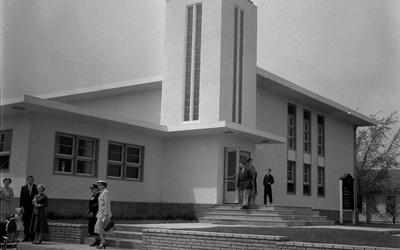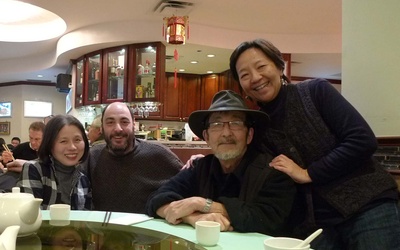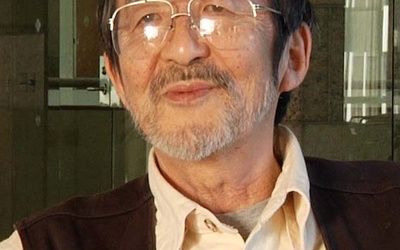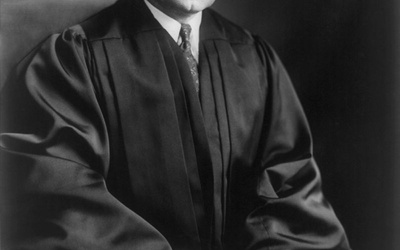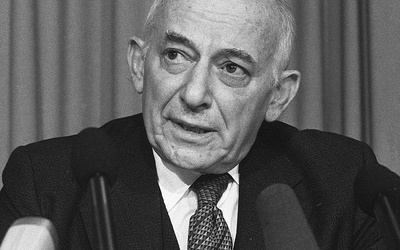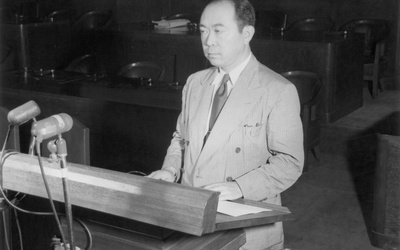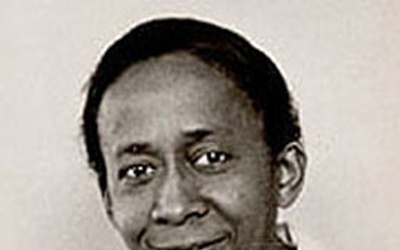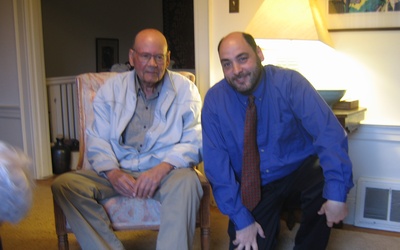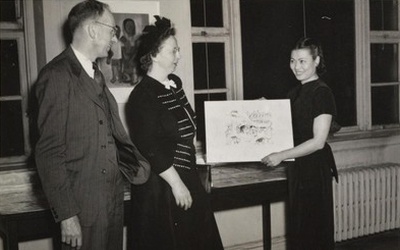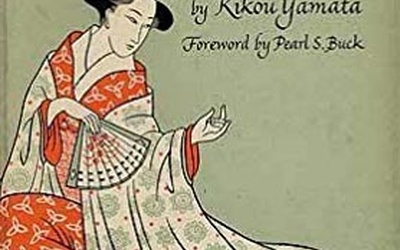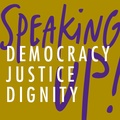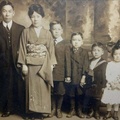
Greg Robinson
@GregGreg Robinson, a native New Yorker, is Professor of History at l'Université du Québec À Montréal, a French-language institution in Montreal, Canada. He is the author of the books By Order of the President: FDR and the Internment of Japanese Americans (Harvard University Press, 2001), A Tragedy of Democracy; Japanese Confinement in North America (Columbia University Press, 2009), After Camp: Portraits in Postwar Japanese Life and Politics (University of California Press, 2012), Pacific Citizens: Larry and Guyo Tajiri and Japanese American Journalism in the World War II Era (University of Illinois Press, 2012), and The Great Unknown: Japanese American Sketches (University Press of Colorado, 2016), as well as coeditor of the anthology Miné Okubo: Following Her Own Road (University of Washington Press, 2008). Robinson is also coeditor of the volume John Okada - The Life & Rediscovered Work of the Author of No-No Boy (University of Washington Press, 2018).
His historical column “The Great Unknown and the Unknown Great,” is a well-known feature of the Nichi Bei Weekly newspaper. Robinson’s latest book is an anthology of his Nichi Bei columns and stories published on Discover Nikkei, The Unsung Great: Portraits of Extraordinary Japanese Americans (University of Washington Press, 2020). It was recognized with an Association for Asian American Studies Book Award for Outstanding Achievement in History Honorable Mention in 2022. He can be reached at robinson.greg@uqam.ca.
Updated March 2022
Stories from This Author
The Canadian Japanese Mennonite Scholarship: In support of Reconciliation
April 7, 2020 • Greg Robinson , Zacharie Leclair
The wartime confinement of Japanese Canadians is a landmark in the history of civil rights and race relations nationwide. Like their counterparts south of the border, 22,000 Canadian residents of Japanese ancestry suffered official wartime removal and mass confinement. In addition, their land and personal property were confiscated by Canada’s federal government and subjected to forced sales, which left the community largely destitute. Once the war was over, the Canadian government instituted mass deportation of all those who had refused …
Way Down in Egypt Land: Tamio Wakayama, Civil Rights Photographer - Part 2
March 12, 2020 • Greg Robinson
Read Part 1 >> I cannot recall precisely when I first heard of Tamio Wakayama. Although I owned a copy of A Dream of Riches and had looked through his 1992 book Kikyō – Coming Home to Powell Street, I had only a rather vague sense of him until about 10 years ago, when I began hearing about a Japanese Canadian who had once been active in the civil rights movement. As a historian who had focused on connections between …
Way Down in Egypt Land: Tamio Wakayama, Civil Rights Photographer - Part 1
March 11, 2020 • Greg Robinson
In the column I wrote some time ago on the Nisei photographer Yoichi Okamoto, who served as official photographer in the White House during the administration of Lyndon B. Johnson, I spoke about how his photographs go beyond political propaganda and shine as both art and history. This is, if anything, even more true in the case of Tamio Wakayama, another Nikkei whose camera captured the history of 1960s America. Tamio Wakayama was not only a witness, who documented the …
Eugene Rostow’s Japanese American articles: A Reconsideration - Part 2
Jan. 30, 2020 • Greg Robinson , Jonathan van Harmelen
Read Part 1 >> Eugene Rostow’s twin articles appeared in late summer 1945. The overall thesis of both pieces was that the indefinite “internment” of West Coast Japanese Americans under prison conditions, and the severe property losses they had sustained, had been a grave injustice - “the worst blow our liberties have sustained in many years.”1 Worse, by upholding the government’s actions in the “Japanese American cases,” the Supreme Court had converted a “wartime folly” into permanent legal doctrine.2 Rostow …
Eugene Rostow’s Japanese American articles: A Reconsideration - Part 1
Jan. 29, 2020 • Greg Robinson , Jonathan van Harmelen
In the annals of civil rights, a special place should be reserved for Eugene Rostow. In 1945, even as Japanese Americans remained confined in camps by official order, Rostow, then a young law professor at Yale University, published a pair of articles that criticized their wartime treatment. In his first article, “The Japanese-American Cases - A Disaster,” published in the Yale Law Journal in mid-1945, Rostow presented a powerfully-reasoned critique of removal and incarceration as America’s “worst wartime mistake,” and …
George Yamaoka for the Defense: The story of a Transnational Nisei Lawyer and Businessman
Dec. 12, 2019 • Greg Robinson
The life of George Yamaoka, a Japanese American lawyer who was appointed by the Allies to defend accused Japanese war criminals after World War II, represents an interesting variation on the Nisei experience. Yamaoka was born in Seattle on January 26, 1903. His father, Otohiko Yamaoka, was a Japan-born lawyer and community leader. As a youth, the senior Yamaoka had become one of the youngest men ever elected to the Diet. After being imprisoned for treason for his involvement in …
Erna P. Harris: An African-American Champion of Equality
Nov. 26, 2019 • Greg Robinson
One part of the history of Japanese Americans that has been curiously neglected is the disproportionate support offered them by Black Americans at the time of their mass wartime confinement. Victims of racial injustice themselves, African Americans demonstrated different forms of solidarity to their Nikkei counterparts during those years. In particular, there are numerous examples of African American writers and journalists who spoke out in support of the rights of Japanese Americans in the wake of Executive Order 9066. The …
Japanese Americans and the legacy of Hugh Macbeth
Nov. 13, 2019 • Greg Robinson
The passing of Hugh Macbeth, Jr., who died in September 2019 at the age of 100, offers us an opportunity to reflect once more on the story of the remarkable Macbeth family and especially Hugh Macbeth, Sr and Jr, the father-son team of African American lawyers who provided outstanding support to Japanese Americans in the World War II era. One of the most gratifying and inspiring experiences of my life was uncovering their story and bringing it to public attention. …
The French (Nikkei) Connection: Japanese Americans in Midcentury Paris
Oct. 28, 2019 • Greg Robinson
My recent article on the French-born mixed-race Japanese writer Kikou Yamata, whose works were published in translation in the United States and discussed in Nisei literary reviews, has inspired me to delve more into the fascinating and varied history of the connections that Japanese Americans forged with France during the period before and after World War II, and the nature of their cultural exchange. This is an enormous subject, which encompasses such diverse elements as the experience of the Nisei …
Kikou Yamata: Rediscovering the First Nisei Writer
Oct. 14, 2019 • Greg Robinson
Throughout the 20th century, Nikkei writers have dreamed of writing “the Great Nisei novel,” a work of literature that would express the Japanese/American experience and show off the writing talents of the second generation. Critics have meanwhile drawn attention to existing works as the “greatest”. Frank Abe, my friend and collaborator on the new anthology John Okada, claims the prize for Okada’s novel, No-No Boy (1957). I have several favorite candidates, including Gene Oishi’s remarkable work, Fox Drum Bebop (2014). …

